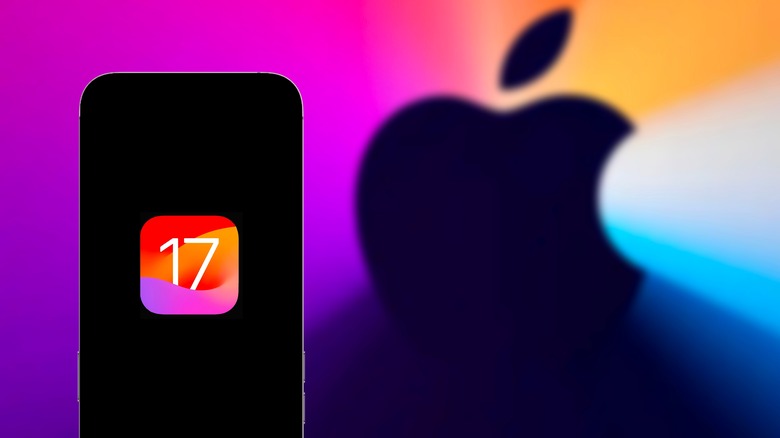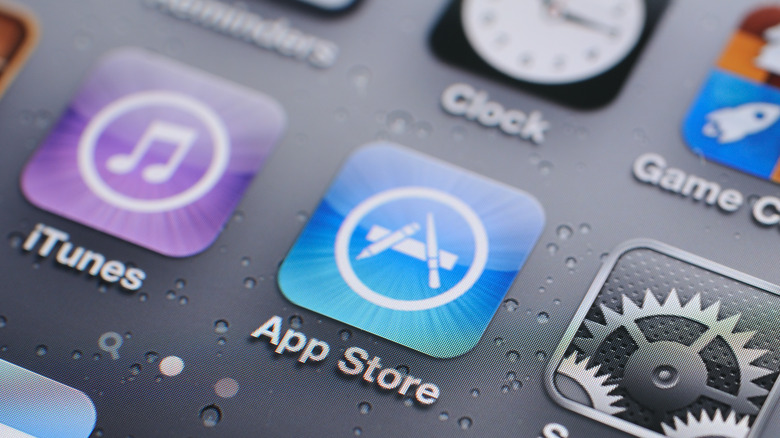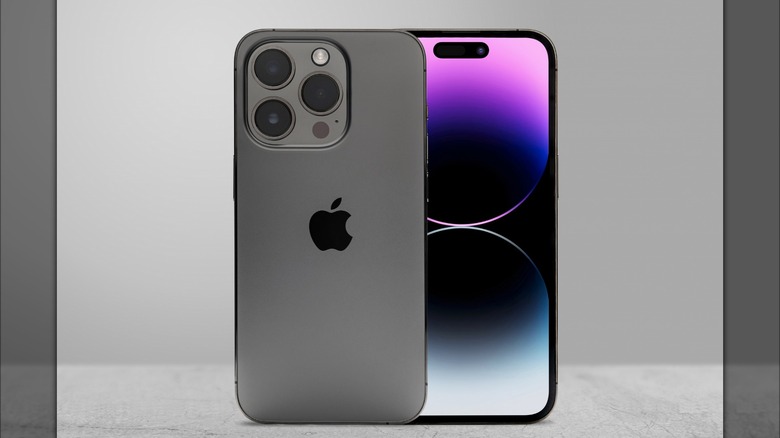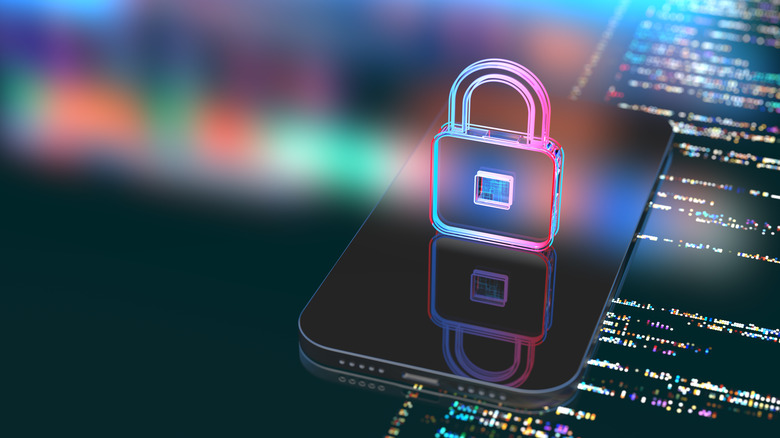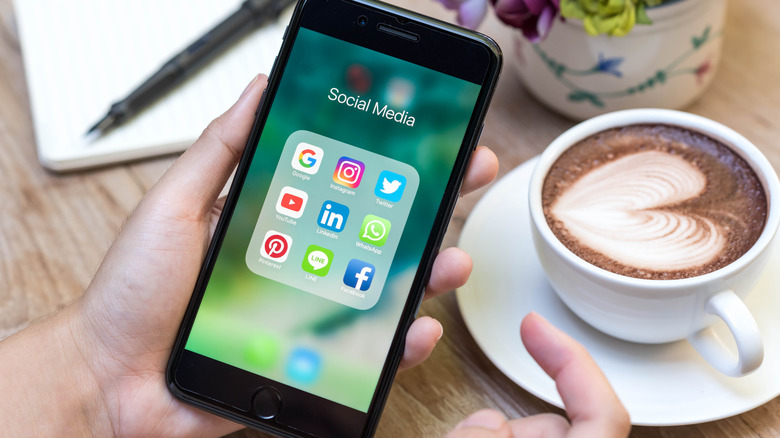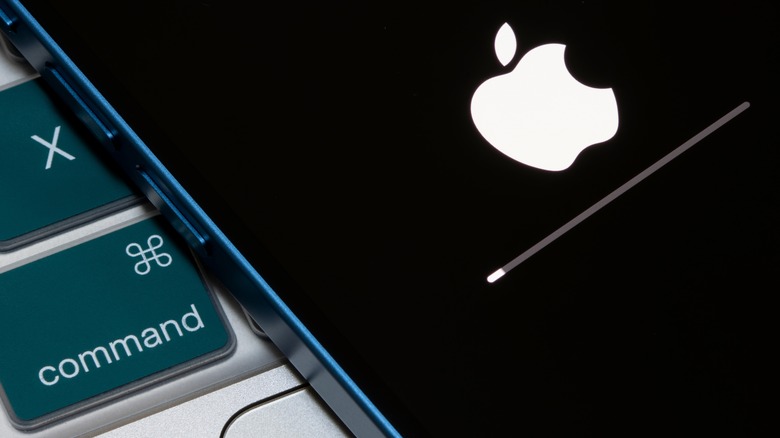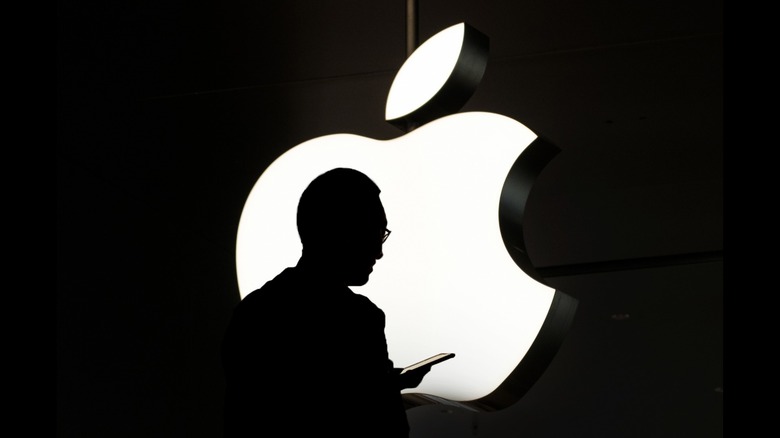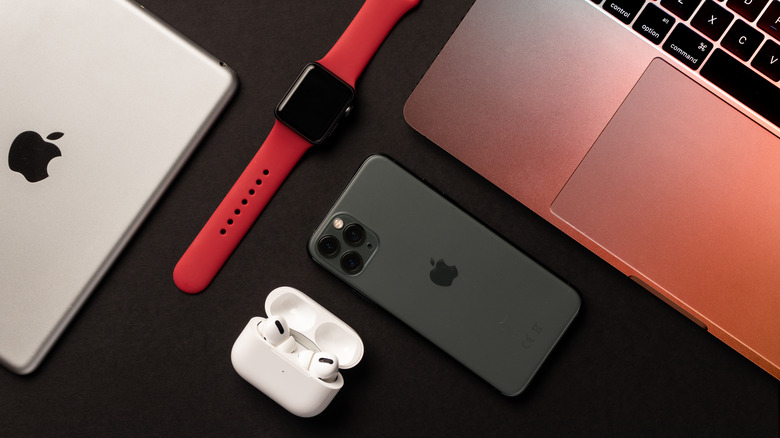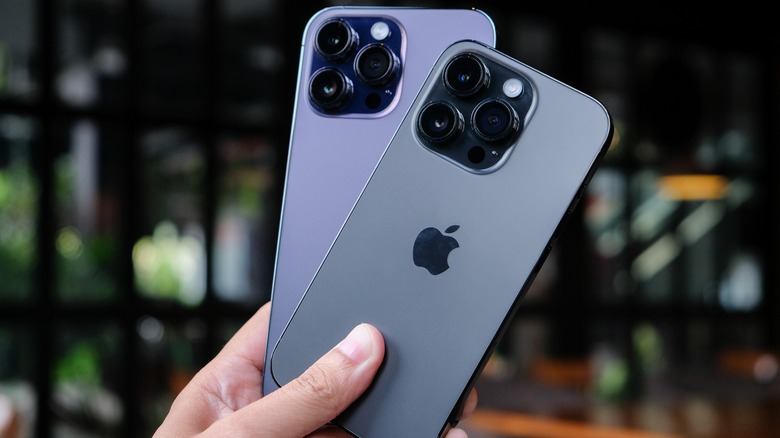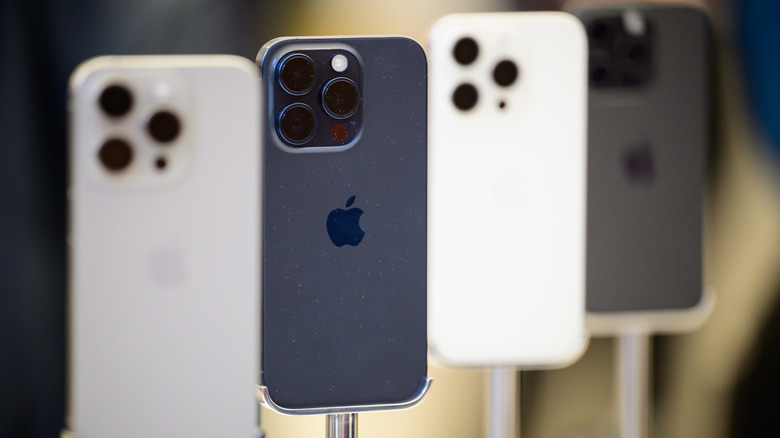The Top 10 Reasons Why People Say They Prefer iPhone Over Android
Throughout history, several debate topics have stirred discussions globally, like "Does pineapple belong on pizza?", "Should toilet paper hang over or under?" and the tech world's classic, "Which is better, iPhone or Android?" None of these debates have definitive answers, as they really just boil down to personal preference.
There are numerous reasons why we choose what we like and don't like, and that's especially true when it comes to choosing what phone we use. In this article, we're going to explore some of the top reasons why people say they prefer iPhones over Android. Drawing on insights into Apple's security features, brand recognition, integration, performance, and ecosystem, we're looking closely at iPhone users' major draws when discussing their preferences.
From ardent supporters to those who are completely indifferent, iPhones can be found in the pockets of people all over the world. We aren't going to settle the debate today, but perhaps it'll be less confrontational than typical conversations between iPhone and Android supporters.
Apps
One of the main reasons iPhone users often prefer Apple products is the safety and security of the apps on the App Store. Every app available on this platform undergoes a stringent check to ensure it is free from malware and other harmful code, safeguarding both the user and their device. This high standard is stricter than many other app marketplaces and has solidified the App Store's reputation as one of the safest options for downloading apps.
Although there are more apps in the Google Play Store, many iPhone users prefer Apple's App Store, pointing to a quality-over-quantity as the better approach. Likewise, developers often choose to launch their products on Apple's platform first, owing to the standardization of iPhones. This reputation has not only attracted a wide range of applications but has also influenced developers' strategies. Consequently, this focus on high-quality app offerings is a significant factor in why many users prefer iPhones over Android phones.
Better Performance
iPhone users love their devices because they are smooth and responsive. Apple has complete control over the hardware and software of its phones, ensuring that its developers can tweak each aspect to their exacting standards and that they are both optimized. In addition, Apple provides updates and support to keep its phones working for long periods of time, much longer than most other phone brands.
Inside an iPhone are Apple's custom-designed processors and microchips. This is a distinct advantage over mass-produced standard chips. In addition, iPhones have made great strides in improving battery life, performance, and heat management. This all extends the phone's life and improves overall performance.
Finally, one of the main reasons that many users prefer iPhones is the constant updates and support. These updates last for years, so when you want to speed up an older iPhone by conducting a factory reset and update, it still functions well even after years of use.
Privacy and Security
iPhones are highly regarded for their security, largely due to Apple's closed ecosystem, which makes it harder for malware to infiltrate these devices. This security aspect is one of the reasons many users prefer iPhones, as they feel safeguarded by Apple's strong focus on privacy and security. Regular system updates are crucial in maintaining this security, with the primary vulnerability being phishing scams where users might inadvertently share their passwords.
The debate between Android and iPhone users often highlights facial recognition technology. Although Android introduced this feature first, it had vulnerabilities, such as being tricked by a photo. When Apple introduced facial recognition in iPhones, the company resolved these security issues, making it one of the most secure options available.
Furthermore, the App Store's strict guidelines and vetting processes ensure that all apps downloaded are free from viruses and transparent in their operations, including clear disclosures of charges. As of now, iPhones don't allow app installations from outside the App Store without jailbreaking.
iPhone users also enjoy added protection with a system called Secure Enclave to ensure your most sensitive data remains hidden. If something does go wrong, there is a processor on an iPhone that's separate from the main processor whose sole purpose is to perform a backup in the event of an attack.
User-Friendly Operating System
One of the main reasons why millions of users prefer iPhones is that they're very user-friendly. All of the features of an iPhone have been painstakingly designed for ease of use. With only one button and a touchscreen, users can easily access all of the many features of an iPhone.
While Android phones are also easy to use and user-friendly, iPhones have been using the same system to navigate and their OS since the first iPod Touch. Over the years, the intuitive and simple functions have continued to be refined.
A running joke between Android and iPhone users is that iPhones will eventually get the same features and functionality that an Android has several years after they're released on Android. While it's true that Android devices have many features that iPhones do not and typically get new features first, such as facial recognition unlock and health data metrics, many users continue to prefer iPhones.
This preference is because Apple takes the time to refine and integrate these technologies into its interface. When new features are rolled out on iPhones, they are already compatible with all Apple devices and are user-friendly within the Apple system.
iOS Software Updates
Apple is known for excellent tech support and timely software updates that allow you to update your iPhone. While these frequent updates might seem bothersome to some users, they are a vital part of the iPhone experience and a hallmark of Apple products.
The motivation behind these updates isn't to slow down your phone or consume memory. Instead, most updates are centered around security. As hackers and viruses constantly evolve and new security threats emerge, these updates serve to promptly address vulnerabilities and security loopholes. This proactive approach to software maintenance is a key reason why iPhone users often prefer Apple products. They are assured of ongoing support for the duration of their phone's life, a contrast to open-source systems like Android, which rely on individual manufacturers for updates.
In addition to security, these updates aren't just about backend improvements. Apple's ability to globally roll out new updates and features to its network of users instantly allows the company to deliver new products and functionalities as soon as they become available.
Brand Reputation
Apple's recognition as one of the most iconic and valuable brands globally stems from the immense power of brand recognition, with Apple positioned right at the very top. The instant recognition of an Apple with a bite taken out — the Apple logo — speaks to the company's success. Achieving the status of a top global brand is not by chance; it requires diligent work and gaining the public's trust in their products.
Beyond its reputation, walking into any Apple Store worldwide assures consumers of receiving officially licensed products, complete with warranties and customer service that Apple is known for. This guarantee from the company has fostered a rare level of trust between Apple and its customers, influencing many (including Gen Z) to choose iPhones and other Apple products over their Android competition.
Additionally, Apple's renown as a brand also carries a sense of status and societal prestige. The distinctiveness of an iPhone, easily recognizable, has made it a symbol of both professional respectability and social esteem. They're well-regarded in both the professional world and public spheres, making them a status symbol as well as an excellent everyday device.
The Apple Ecosystem
One of the most significant reasons for people to prefer iPhones over Android is the power of the Apple ecosystem of products. iPhones integrate with other Apple devices, such as iPads and Macs. This makes it easy to share files and data between your devices.
When it comes to choosing devices and operating systems, consumers typically decide between Apple or Android for mobile and Apple or Windows for desktops and laptops. One of the main advantages in Apple's favor is that its name appears on both of those lists.
Apple's product lines are all made by one company, and all of them are designed to work together flawlessly. While integration between Windows OS and Android phones is possible, it typically requires more steps. With Apple, everything is connected to your Apple ID and syncs together right out of the box.
By simply signing into your devices with your Apple ID, everything is automatically ready to be synced and used. Your Apple Watch can give health information readouts directly to your iPhone. Your iPhone can control your Apple TV. If you need another monitor, you can use Apple's Sidecar feature to simply extend your monitor onto another Apple device.
Family Sharing
Apple's Family Sharing feature allows for purchases and data storage across multiple iOS devices and Apple ID accounts. This feature supports up to six family members, enabling them to share music, films, apps, photo albums, calendars, and reminders. It also provides parental controls for children's app purchases.
Apple's integration across its products makes its Family Sharing plan particularly appealing to users, with a single login allowing for six accounts to share data. Purchases made on one device, like movies on Apple TV or music on iTunes, are accessible on all shared devices without needing to switch accounts. Parents can set limits and monitor their children's activities while also synchronizing calendars and reminders to keep the whole family informed. There's nothing worse than forgetting a birthday or an anniversary.
Unlike services like Google or Steam, which require multiple setups for different accounts, Apple's unified infrastructure means setting up Family Sharing just once for uninterrupted use across all Apple devices.
Apple's Trade-In Policy
When you speak to long-time iPhone users about why they love their phones, one of the main things they'll point to is Apple's trade-in policy. Apple's trade-in and recycling policy allows users to hand over their old devices either at Apple's physical stores or through the mail in exchange for store credit toward new products. This policy is part of Apple's extensive infrastructure and support system, ensuring that everything works smoothly together, including the disposal of old products.
Apple stands out by offering a particularly generous trade-in policy directly, unlike other companies that often rely on third-party retailers for trade-ins. The process is convenient, allowing users to either walk into an Apple store or mail their devices. The trade-in value is determined by the device's condition and model age, with newer and well-maintained devices receiving higher store credit.
Additionally, for devices that are too old to trade in, Apple offers recycling, providing an environmentally responsible way to dispose of old phones and lithium batteries.
Resale Value
iPhones are known for retaining a higher resale value compared to Android phones due to their high demand and ability to maintain value over time. iPhone users know this and consider the purchase of a new iPhone a good investment.
Whenever a new iPhone model is released, Apple stores experience a rush of fans waiting in line to get their hands on the latest version. If iPhone users always buy the latest model, this leads to an influx of the previous models in the aftermarket. iPhones hold their value for a long time. For many of us who can't afford the latest iPhone release, the previous version is usually a big upgrade as well as an affordable way to get a better version of the iPhone.
If well-maintained, iPhones can last over seven years. Apple supports and updates its phones for seven years after discontinuation, meaning that iPhones remain functional and retain significant value for resale during this period, making them a long-lasting investment. That's a long time to have a single phone, and during that time, they'll still be fully functional and retain a good portion of their value for resale.
